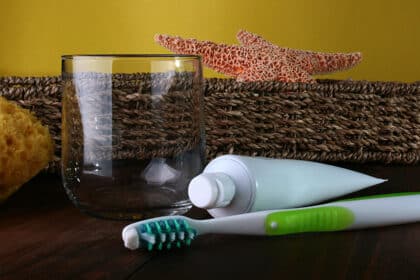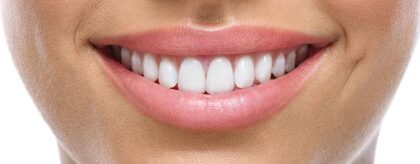Mouth Burn: Causes and Treatments
A mouth burn is most often caused by consuming hot food or liquid. The pizza you just cooked came out of the oven piping hot, smelling better than any pizza you’ve had before. You know it’s a bad idea to bite into it right away, but you do anyway.
However, giving into this temptation can have very painful results. A mouth burn is quite painful, and can cause long-lasting issues.
Complications of Mouth Burns
Most of us in the above situation, whether we burn our mouth on hot pizza or hot coffee, only suffer from a mouth burn for a few days to about a week. However, it can unfortunately lead to some agonizing issues.
According to the Wound Care Society, cuts and other trauma to mouth tissue “usually heal within days,” meaning most mouth burns don’t end up needing medical attention.
According to Dr. Alison Bruce of The Mayo Clinic, most mouth burns are considered first-degree burns that “damage cells in the outermost layer of the skin on your tongue, roof of your mouth, or the inside of your cheeks.” (1)
Burns Can Develop Into Blisters, Mouth Ulcers or Worse
Some people however, have received second- or third-degree mouth burn. With these types of burns the tissue of your mouth and tongue can blister, causing damage to multiple layers. Some can even cause damage that involves all layers of the tissue, leaving it discolored and charred. A tissue graft may even be needed in extreme mouth burn cases.
According to Livestrong, some of these types of burns “damage the nerves” and that “it might not be painful.” –How to Heal an Internal Mouth Burn, Livestrong.
Both second- and third-degree mouth burns need medical attention right away.
Infection
If you burn your mouth severely enough, as stated above, blisters can form. If not properly taken care of, a mouth burn and its blisters can become infected. It is very important to see your dentist right away if you notice any blistering in your mouth where you were burned.
Symptoms of an infected ulcer caused from a mouth burn include:
- Increased pain
- Redness
- High fever
- Pus leaking from ulcer
- Fatigue
Tongue Burns Can Destroy Taste Buds
If you burn your tongue badly enough, it can actually lead to the destruction of some of your taste buds. Thankfully, taste buds do grow back, but the worse the burn, the longer it will take for the taste buds to grow back. But don’t worry! We don’t lose your sense of taste from taste buds being burnt off.
Remedies for Your Burnt Mouth
If you have only slightly scalded your mouth, and do not think you have received second or third-degree burns, there are steps you can take to treat the issue at home.
The first step to treating the pain is to soothe the immediate discomfort. This can be done by sucking on something cold, such as ice or a popsicle. If milk is available, that is even better, as it has coating properties in addition to soothing the burning sensation.
Next, try an over-the-counter pain reliever. Everyday Health recommends using Orabase, which could mean a trip to your local Walgreens or CVS. This product is an excellent choice for a mouth burn, as it temporarily coats the area and helps alleviate the pain associated with the wound. Using over the counter ointment from your local pharmacy can help greatly, especially with eating and talking while your mouth is healing. Be sure to check with your dentist to find the right type, if you have any questions, or if the pain lasts more than a few days or your mouth begins to blister.
Home Relief and Precautions
- Suck on an ice cubs (but don’t chew it, because you can crack a tooth!)
- Avoid consuming anything else that is hot.
- Avoid salty foods, which will cause further irritation.
- Use over the counter ointments, especially those with benzocaine.
- Take an over the counter pain medication.
- Try using Vitamin E, which can help wounds heal.
Mouth Burn Can Signal a Medical Condition
If pain or redness is present on the tongue, lips, gums, or inner cheeks without having consumed hot food or liquid, there may be another cause: burning mouth syndrome.
Burning Mouth Syndrome
Burning mouth syndrome can occur at anytime with no apparent cause. It has all of the symptoms of a mouth burn from hot food or hot liquid – pain, redness, and sensitivity – but patients also report a few more such as:
- Numbness or tingling
- Taste changes
- Dry mouth
- Increased thirst
- Burning of the lips and/or throat
-
While the exact cause may not be clear, the most common culprits include extreme dry mouth, nutritional problems, overbrushing of the tongue, acid reflux, or food allergy.
Regardless of what the cause may be, sudden burning mouth syndrome that is not triggered by a mouth burn should be checked by a medical professional as soon as possible.
Thrush
Thrush is a mouth infection commonly referred to as “a burning sensation in the mouth.” Caused by the candida fungus (yeast), thrush can occur when too much stress or illness offsets the amount of yeast already present in the mouth.
Thrush develops quickly and feels exactly like you have burned your mouth. The best way to determine if you have thrush instead of a mouth burn is to look at the area of concern in a mirror. Most of the time, thrush shows itself as tiny white bumps in a cluster all over the mouth and tongue.
Prescribed medication is required to treat thrush, so contact a medical professional you trust to schedule an appointment if you believe you have this infection.
When Should You Call Your Doctor?
If you burn your mouth on something hot, you do not necessarily need to be seen by a doctor. As long as the mouth burn is not severe and there are no blisters present, try the home remedies listed above. But if the pain and redness persists after scalding your mouth, or if you see any blistering, call your doctor right away.
It is imperative to be seen for thrush or any infection of the mouth right away, however, as if left untreated it can possibly spread to other parts of your body.
If you suspect you have any type of infection in your mouth but are unsure of its severity, please schedule an appointment as soon as possible so your dentist can determine the right steps for your mouth burn.
Reference: (1) Let Your Food Cool, Dr. Alison Bruce, Mayo Clinic.




